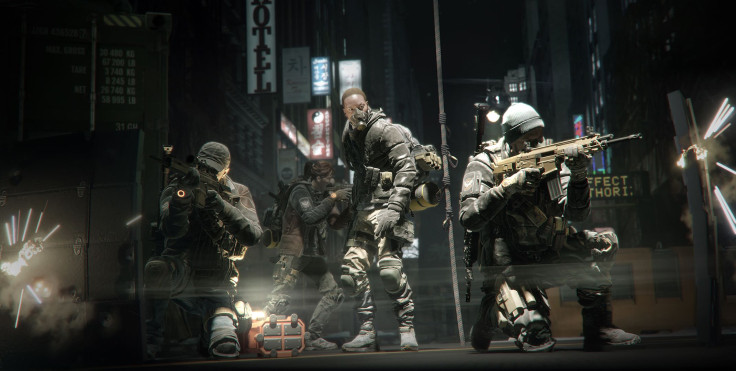On every level, The Division is insistent on maintaining its own alternate reality as believably as possible. How could the societal collapse of The Division take place? What would be the perfect playground for the worst case scenario? What would the average person really need to know to survive?
John Galvin, disaster expert and consultant on The Division, was part of the team pulled in to make The Division’s nightmarish vision of a ruined post-society. “Just keeping things in the realm of possibilities,” says Galvin.
According to Galvin, the keys to survival are basic and obvious for everyone: water, food and a plan. And on one of those fronts, you’re in special luck if you’re a New Yorker.
“The water in New York is pressure-fed from these aquifers and reservoirs further upstream, so you'll get access. And it's clean! New York water is really clean,” says Galvin.
Storing water might be tricky in a shoebox apartment, especially the federal requirement of three gallons per person per day. Food, in a hellscape filled with looters and rioters, is dicey too. But a disaster plan is a must -- and it’s no good without practice. “That goes for a fire in your apartment building to something more catastrophic,” says Galvin. “We all deal with minor emergencies everyday.”
But at the end of the day -- or the long night -- humanity will endure. “Humans, I don't think we can even help it,” says Galvin. “I think we just keep plowing on. There's no other ways around it.”
Alex Irvine, author of The Division ’s accompanying transmedia novel New York Collapse, agrees. “In a regular day-to-day preparedness way would it kill anybody to have a go bag that had some stuff in it just in case?” he says. “I think about it now in a way that I didn't before.”
Irvine was concerned with making sure that New York Collapse was an authentic piece of transmedia rather than “a parallel branding exercise.” To stay focused, he based his book on a real survivalist guide and makes sure his main character, April, actually uses the accurate information presented there. It’s survival information you could use too, if you needed it, making New York Collapse that much more immersive a read.
“I wanted to take a real reality-based approach to this,” says Irvine. “Her story is really, really down-to-earth and realistic. She encounters a Division agent at one point and doesn't really know who he is, which would be the case for a lot of ordinary citizens in NYC. Nobody would know if they were good or bad guys. And then they would find out, and that's all part of April's story too.”
The book also includes puzzles, some of which are tough enough that Irvine describes them as a “collaborative effort.” For those who make the effort to solve them, the puzzles reveal critical facts about the world of The Division. “The specific nature of the puzzles wasn't tied to the game development. Where the interlacing of the game and novel stories occurred was in the narrative background,” says Irvine.
The narrative background of The Division is based on real (and really terrifying) facts about what makes or breaks a bioterror or chemical attack. Martin Hultberg, IP director at Ubisoft Massive, says that’s why they went with New York City.
“You need the crowds, you need the densely controlled areas, so basically any major city,” Hultburg explained. “Manhattan is even more restricted because there are only so many ways off, and those are bridges and tunnels and ferries which again gathers people in a close proximity. So as we researched it we began to understand what the worst case scenario is. We actually had a few ideas for how to spread the virus and we settled on the money after seeing videos from Black Friday, where people were almost killing each other over discount TVs. And we were like, that's too good to pass up.”
Hultburg hopes people who play The Division will get something extra out of it: a bit of disaster-preparedness they might otherwise not have had.
“With the work I have done focused on staying grounded in reality, one of the things I want to have done is I want to teach people something. Not just give them an entertainment experience but when they walk away they should carry something with them that is more tangible. They learned something that has a use outside of the game world,” says Hultberg. “So we tried to connect to things all along the way to get something that resonates.”
The Division releases March 8 with a year’s worth of content already detailed by Ubisoft. Turns out reality’s a rich well to mine. Are you prepared?


















